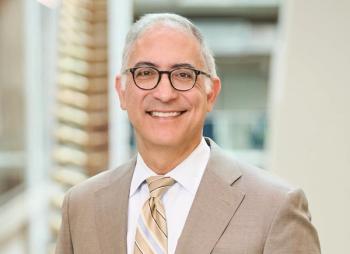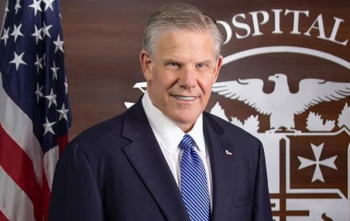
Kentucky hospital looks to join larger system
Deaconess Health is exploring the possibility of acquiring Jennie Stuart Health, one of many rural hospitals facing financial pressures.
Like a host of other rural hospitals, Jennie Stuart Health has dealt with the challenges of operating as an independent provider.
Jennie Stuart, based in Hopkinsville, Kentucky, has served its community for more than a century. Just
Deaconess Health is moving to acquire Jennie Stuart Health. The two organizations have signed a non-binding letter of intent to come together, and they say they will conduct due diligence of a merger in the coming weeks.
Eric Lee, president and CEO of Jennie Stuart, says joining Deaconess would help ensure the long-term viability of the hospital.
“Rural hospitals today are facing huge challenges to provide the healthcare needed to best serve our communities,” Lee said in a statement. “By coming together with Deaconess, we will be able to continue our mission and expand services that we know will positively impact the health and well-being of the communities we serve.”
Deaconess and Jennie Stuart say they expect to finalize an agreement by the end of 2024. Regulators must still approve the transaction.
Shawn McCoy, CEO of Deaconess, noted that the two organizations have worked together in the past, providing the foundation for a broader partnership.
“Our aim is to ensure that quality healthcare remains local, driven by local decision making and a community-focused approach,” McCoy said in a statement. “Deaconess has collaborated with Jennie Stuart and local providers in Kentucky for many years, and we look forward to ensuring that specialized services are accessible to all the patients Jennie Stuart serves.”
Jennie Stuart is anchored by an acute care hospital licensed for 194 beds. The organization also operates an ambulatory surgery center, an imaging center and a sports and rehabilitation center. Jennie Stuart’s primary service area includes Christian, Trigg and Todd counties, but the hospital also serves patients in several surrounding counties. Its base in Hopkinsville is about 72 miles from Nashville, Tennessee.
The potential sale of Jennie Stuart has elicited concerns from some members of the community.
Hopkinsville Mayor James R. Knight Jr. said he wants to see the hospital remain under local control, and he said he’s spoken with others in the community with similar sentiments,
“We all believe very strongly that we need to remain a community hospital,” Knight told the Chronicle.
Jennie Stuart had a stable outlook from Fitch Ratings in
Other rural hospitals nationwide are struggling to maintain operations, and
Based in Evansville, Ind., Deaconess serves a population of more than 1.5 million people in southwestern Indiana, western Kentucky, and southeastern Illinois.
Founded by a group of ministers in 1892, Deaconess operates 19 hospitals and nearly 150 healthcare locations. Some of those hospitals are wholly owned by Deaconess and some facilities are joint ventures or affiliated hospital locations.
Deaconess has been growing in recent years. In February,
The system struck a deal with Quorum Health to acquire four hospitals in Illinois in 2022: Crossroads Community Hospital in Mt. Vernon; Heartland Regional Medical Center in Marion; Red Bud Regional Hospital in Red Bud; and Union County Hospital in Anna.
- Read more:
Indiana hospital merger meets FTC opposition








































